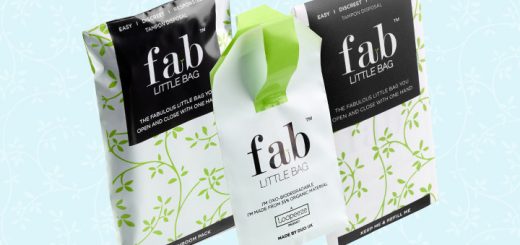
Hedgehog Awareness Week
Hedgehog Awareness Week is May 3rd-9th 2020. Did you know that hedgehogs have been around for tens of millions of years? From Shakespeare’s Furze-pigs to Mrs Tiggy-Winkle or Sonic, hedgehogs have been beloved in our culture, and were once a common sight across the UK.
Sadly, our native mammals have suffered a massive decline in the last few decades and they need our awareness and help. It’s so easy to make a few changes that can help our spiky friends. Even if you don’t have a garden, find out how you can help.
Shop our hedgehog houses, guides and some fun eco-friendly hedgehog themed gifts. You can install a simple DIY footprint tracking tunnel to find out if you have hedgehogs in your area, and give them a bit of help to thrive. You might see them out and about soon, as their breeding season is mid-May to late September.
Hedgehog Myths
I’ve heard a few myths about hedgehogs in my time, and sadly this has led to persecution of our once common native mammal. Have you heard any you’d like to add?
“Hedgehogs are bad, they carry fleas!”
Yes hedgehogs do sometimes have fleas, but they’re not even the same type as the fleas you know, and can’t survive on pets or people. If you do ever have to pick one up (only when they need help – see our tips below) use a pair of garden gloves or a towel, to protect yourself from their spines – any fleas don’t pose a risk, they’re not interested in you!
“Badgers/cats/dogs kill hedgehogs”
While badgers are the only animal capable of getting past the spines and potentially killing a hedgehog, a recent study found that in many regions badgers are also missing from regions where hog numbers are down, and that in more than half of areas badgers and hedgehogs co-exist without problems.
Dogs can pose a problem to young hedgehogs leaving the nest, so try to keep them indoors or on a lead at night. While dogs might sniff out or strike an adult hedgehog, they’ll usually only do it once when they meet those spines! Cats will learn in the same way, often don’t pay them much notice and can be seen enjoying the food alongside them in local gardens.
Simply put, hedgehogs used to live alongside many creatures for thousands of years before their sudden decline, and that decline is not down to your household pet.
“Leave out some bread and milk”
Many well-meaning people have left out bread and milk to help their neighbourhood hogs, but it’s not a good idea. They’re lactose intolerant, so just leave them fresh water to drink. A healthy garden with worms, slugs and snails is by far the best for them, but supplementary food of wet/dry meat cat or dog food can be given (bread gives them no useful nutrition) or a specialist hedgehog food.
Find out all you need to know about hedgehogs with these handy FAQs from the Hedgehog Street project.
Help our hedgehogs – top tips
1 – Safety First
Check your garden thoroughly before using a lawnmower, strimmer or other tool – hedgehogs can be severely injured by them. Goal nets and trampoline netting can be lethal for birds, hedgehogs and other wildlife. Keep it covered or wrapped up, out of the way. Don’t leave drains uncovered, and make sure all ponds have a proper ramp for creatures to crawl out and not get stuck.
2 – Hedgehog Highways
Hedgehogs roam over 2km a night, but our homes increasingly stop that. Creating a 13cm gap at the bottom of fences allows hogs to pass through safely and be able to find food or mates. Say no to chain link fencing – hogs can get their heads stuck! Why not plant a hedgerow, to create a natural barrier wildlife will thrive in? You can also sign the petition to create hedgehog highways with all new building developments.
3 – Ditch the concrete
Paving, decking and hard landscaping can all stop hedgehogs having access to food sources, and negatively impact our environment and many other species.
4 – Clean up
Rubbish belongs in the bin – plastic waste, packets and containers left to blow around outside can injure or trap many species. Always check bonfire heaps for nesting hedgehogs, and keep your garden free of slug pellets or pesticide. Natural alternatives are available to ward off bugs from specific plants instead, but don’t forget that hedgehogs are natural predators for slugs and snails – good news for your strawberry plants!
5 – Food and shelter
You can help hedgehogs out with supplementary food – but no milk or bread please! Hogs are lactose intolerant, and bread gives no useful nutrition. Leave a meat-based cat or dog food (dry or wet) and fresh water to drink. This can help when food is scarce. Provide one of our lovely hedgehog houses in a quiet corner for safe shelter, and install a Hedgehog Crossing in your fence to allow them access.
6 – Drive safe
Drive carefully, and watch out for creatures needing to cross the road, especially at night. Hedgehogs can be stressed by human contact, so it’s best to keep your distance unless they really need help. Contact your local council and ask that provision for hedgehogs is made with local roads – around 50,000 hedgehogs are killed by cars and other vehicles every year, but safe crossing tunnels can be built to help nature get across too.
7 – First Aid
Hedgehogs are nocturnal animals, so if you see one out during the day there may be a serious problem. Be aware of the symptoms for poorly or injured hogs, and always follow expert advice if you do need to help. Handy things to keep ready are clean fragrance-free towels, a hot water bottle (or empty plastic bottle to fill up) and empty boxes. If you find a dead hedgehog, report it to the Garden Wildlife Health project who are identifying threats to British wildlife. They can also help if you suspect wildlife crime.
We’d love to see people helping this fascinating creature thrive – get your colleagues, neighbours and kids involved too! If you’d like to help the British Hedgehog Preservation Society, you can also donate to their JustGiving fundraiser.



